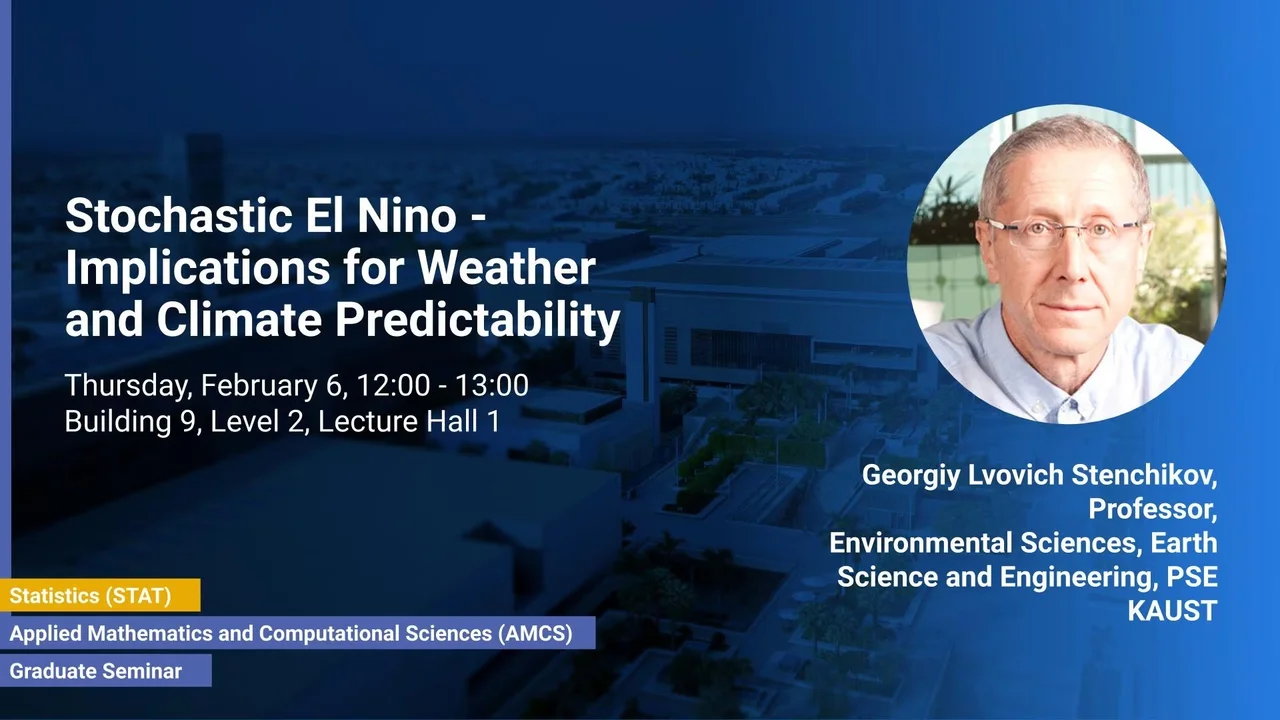
Mathematical modeling of the stochastic climate system
Author of more than 290 journal and conference publications, Professor Stenchikov's research interests are in multi-scale modeling of environmental processes and numerical methods; global climate change, climate downscaling, atmospheric convection; assessment of anthropogenic impacts and geoengineering; air-sea interaction, evaluating environmental consequences of catastrophic events like volcanic eruptions, nuclear explosions, forest and urban fires; and air pollution, transport of aerosols, chemically and optically active atmospheric tracers, their radiative forcing and effect on climate.
Overview
Abstract
It is well known that meteorological and climate fields exhibit pronounced stochastic behavior. Therefore, probabilistic methods are often used to analyze and predict weather and climate. However, in weather forecasts and climate modeling, we use deterministic equations to calculate the evolution of the climate system. The stochasticity then generates within the deterministic dynamical model, so the solution is driven by a combination of stochastic and deterministic processes. In this talk, I will demonstrate the dual dynamical and stochastic behavior of the climate system on the example of the El Ninio Sothern Oscillation (ENSO). ENSO cycle is one of the most important drivers of climate variability. It is observed that volcanic eruptions could reset the ENSO cycle, forcing a positive phase of ENSO. Here we simulate this phenomenon and study the physical driving mechanisms of the ENSO sensitivity.
Brief Biography
Prof. Georgiy Stenchikov is a director of the Earth Sciences and Engineering Program at King Abdullah University of Science and Technology since 2009. He began his research in the Russian Academy of Sciences, where he focused on numerical methods and radiation gas dynamics. He led a research group in the Computer Center of the Russian Academy of Sciences that studied anthropogenic impacts on the Earth’s climate and environmental systems. Since 1992, Prof. Stenchikov worked in the US conducting interdisciplinary studies in the broad field of climate modeling, atmospheric physics, and environmental sciences. For his work on climate impact modeling, Prof. Stenchikov was awarded a Prize from the Council of Ministers of the Soviet Union, a Gold Medal from the Russian National Exhibition, outstanding scientific paper awards from the American Geophysical Union Journal and the National Atmospheric and Oceanic Administration. He also co-authored the Nobel Price winning report from the Intergovernmental Panel on Climate Change AR4.
